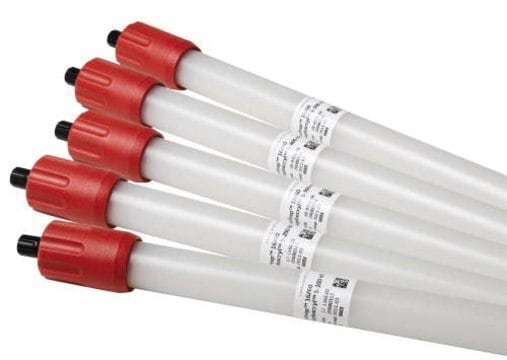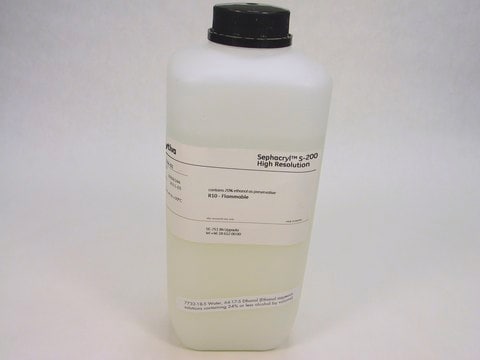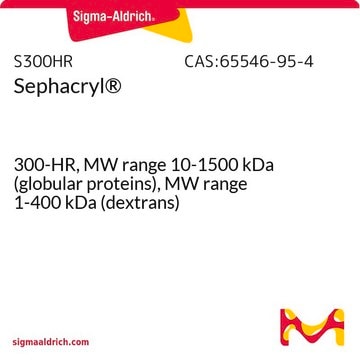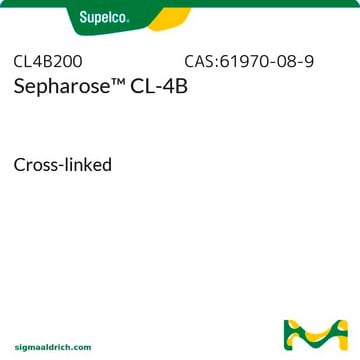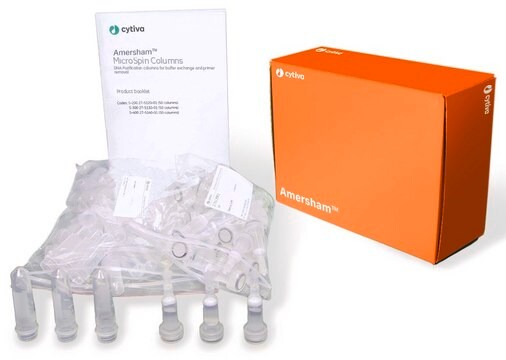S400HR
Sephacryl® Size Exclusion Resin
400-HR, MW range 20-8000 kDa (globular proteins)
Synonyme(s) :
Poly([allyl dextran]-co-N,N′-methylenebisacrylamide)
About This Item
Produits recommandés
product name
Sephacryl®, 400-HR, MW range 20-8000 kDa (globular proteins)
Niveau de qualité
Description
stability: stable to 0.2M NaOH
Forme
suspension (20% aqueous ethanol)
Caractéristiques
autoclavable
Matrice
crosslinked allyl dextran/N,N′-methylenebisacrylamide copolymer
Taille des particules
25-75 μm (wet)
Dimension de pores
10-2000 kDa MW range (dextrans)
20-8000 kDa MW range (globular proteins)
Compatibilité
mode of use size exclusion chromatography
Température de stockage
2-8°C
Vous recherchez des produits similaires ? Visite Guide de comparaison des produits
Description générale
- Supplied swollen, suspended in 20% aqueous ethanol
- Autoclavable
- Stable to 0.2N sodium hydroxide (NaOH)
- Store at refrigerated temperature (2-8 °C)
Application
Informations légales
Produit(s) apparenté(s)
Mention d'avertissement
Warning
Mentions de danger
Conseils de prudence
Classification des risques
Flam. Liq. 3
Code de la classe de stockage
3 - Flammable liquids
Classe de danger pour l'eau (WGK)
WGK 1
Point d'éclair (°F)
100.4 - 109.4 °F - closed cup
Point d'éclair (°C)
38 - 43 °C - closed cup
Équipement de protection individuelle
Eyeshields, Faceshields, Gloves, type ABEK (EN14387) respirator filter
Certificats d'analyse (COA)
Recherchez un Certificats d'analyse (COA) en saisissant le numéro de lot du produit. Les numéros de lot figurent sur l'étiquette du produit après les mots "Lot" ou "Batch".
Déjà en possession de ce produit ?
Retrouvez la documentation relative aux produits que vous avez récemment achetés dans la Bibliothèque de documents.
Les clients ont également consulté
Notre équipe de scientifiques dispose d'une expérience dans tous les secteurs de la recherche, notamment en sciences de la vie, science des matériaux, synthèse chimique, chromatographie, analyse et dans de nombreux autres domaines..
Contacter notre Service technique

